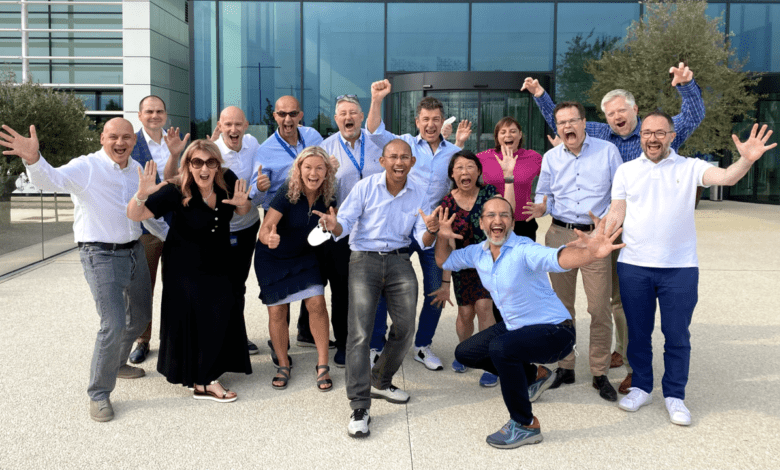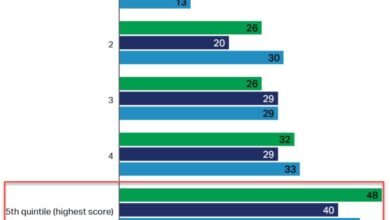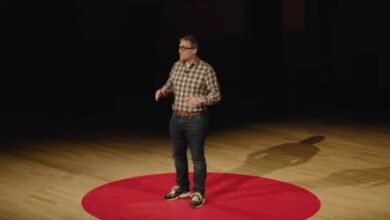
By | Papa CJ | Comedian • Executive Coach • Author • Oxford MBA • HBR Writer • papacj.com • WIT of the Week newsletter on LinkedIn, papacj.substack.com & papacj.medium.com • I uplift others & help them be the best version of themselves
Human connection is a beautiful thing.
Last week I had the privilege, in the role of a Facilitator and Executive Coach, of working with a multinational team that consisted of 10 nationalities: Italian, French, Swedish, British, South African, American, Turkish, Indian, Dutch and Romanian.
The journey that we undertook over 3 days set a shining example for what can be achieved when you get good people with good intentions into a room together.
Day 1 – Trust and Psychological Safety
Over the first 24 hours, absolutely nothing I took the team through, had anything to do with their jobs. It was about getting to know each other at a human level, and learning about and appreciating the journeys that each person had undertaken to get to where they are today.
The evening before, the team watched my show ‘Naked’, in which I get as vulnerable as I can possibly be. That sets a foundation that allows people to reflect upon their journeys, and the people, places, events and adversities that shaped them.
Over an emotional first day, each member of the team courageously shared their stories and spoke about where they found meaning in their lives. It made us appreciate that no matter how different our journeys may have been, what unites us is our humanity. It made us respect each other a lot more and helped us build a foundation of #trust.
The trust we began to build as team, allowed for us to undertake an exercise that created #psychologicalsafety amongst the team. This led us to an exercise involving fearless questioning, which helped individual team members draw on the strengths of the entire team to address their own challenges.
A Note on Psychological Safety
Psychological safety is a belief that the context is safe for interpersonal risk taking – that speaking up with ideas, questions, concerns, or mistakes will be welcomed and valued. However it is not freedom from conflict or a guarantee that your ideas will be applauded. What is does allow for though, is courageous conversations, so that everyone can go from perceptions to active listening, and a deep understanding of each other’s point of view.
Tough uncomfortable moments of honesty without penalty are what allow teams to continue to open up and get to the root of their challenges. It is these difficult moments and honesty of dialogue that set teams up for success.
I’ve seen too many organisations that largely operate as silos with a basic level of information exchange between them. While many of these organisations are incredibly successful, they have immense unrealised potential. They are yet to tap into the phenomenal synergies that could be attained by actively collaborating across verticals.
These are organisations that may have immense psychological safety within their own verticals, but not horizontally between verticals. Organisations where heroes sometimes get more credit than teams and people give more importance to tasks that lead them to individual glory. This may be great for the individual, but in the end isn’t good for the organisation because it rewards the person who resolves the crisis as opposed to building a team that prevents the crisis in the first place.
The lack of transparency and active communication between verticals leads to organisations that aren’t agile enough, aren’t able to tap into cost efficiencies due to lack of horizontal visibility, and aren’t able to innovate at the speed they would like for exactly the same reasons.
While they may strive to empower their people, their people aren’t able to deliver on that empowerment. Occasionally this is due to structural impediments and lack of role clarity between verticals, which results in overlaps, duplicated efforts and wasted resources. This can last for a long time if the existing culture of the organisation doesn’t encourage or see the value of speaking up.
I digress. Back to our specific team and organisation.
Day 2 – Getting Down to Business
On the second day we started addressing business specific challenges and issues. This was a tough day, but in the end, a successful one. In fact I’d say that it was exactly the things that made it tough that made it successful.
On Day 2, due to the platform of trust and psychological safety we built on the first day, people spoke up. We were to not only able get everyone who needed to work together in the same room, but also able to get everyone to speak up and put any elephants in the room on the table. That’s why I said it was a tough day.
The beauty of having everything out in the open though, is that everyone understands how others are feeling as well as what their specific concerns are. To quote Einstein, “If I had an hour to solve a problem I’d spend 55 minutes thinking about the problem and 5 minutes thinking about solutions.”
On Day 2, we were able to, with 100% transparency, put all our challenges on the table. What that allowed for, was for every team member to have a common knowledge, which they may not have had before, of the problem statements that lay before not just individuals, but us as a team. Armed with this knowledge, we were able to put in place an early route map for how we would aim to address these challenges.
Agility in Action
An interesting turn on the second day, was that after lunch, I asked the team what they felt would help them get the most value out of the rest of the day. Their answer was completely different to what I had planned, and so we shifted direction mid-way.
I share this because as coaches it is important for us to realise that we are there to serve our clients. Our North Star is for them to get the maximum value out of the time with us, and not for us to stick to any pre-planned ideas of our own. If we want our coachees to be agile and adapt, we need to be able to do the same.
At the end of this challenging yet successful day, a senior member of the client team, Manuele Lelli, stood up of his own accord, and said this (video posted with his permission):
Day 3 – Bringing It All Together
We are sometimes so focussed on solving for what we need to solve, that we don’t realise that unless we address how to solve it, we will never be able to successfully address the what.
My main objective for the 3 days we spent together was to move the needle around HOW we work together as a team. That is what we focussed on coming full circle to, on the third day, and I believe we were able to achieve that.
As a team we were able to find common agreement on ground rules for how we would work with each other going forward. And we were able to commit to the values and #behaviours that would allow us to succeed together.
We then spent some time on #mindfulness. Very often we go to off sites, commit to doing things differently, and go back to work and do things exactly as we have done before. So we spent some time looking at what some of the traps are that get us into autopilot, and played some games to explore how we can get out of it. The two that I enjoyed the most were the ones that involved the most movement and fun.
Michele Carville, in the week prior to the workshop, told me about The Trust Equation. Where Trust = (Credibility + Reliability + Intimacy)/Self-Orientation. Over the three days our team spent together, I believe we were able to increase credibility, reliability and intimacy, and reduce self-orientation.
Value delivered
The comments below about the value that participants received from our time together, warmed my heart, and will remain with me:
“We successfully amplified the human element and laid the foundation for magic to happen.”
“During these 3 days I understood that the team we have is a fantastic group of very authentic people.”
“I feel closer to all the members of my team.”
“I feel empowered.”
“I feel like we have each others’ backs.”
“I feel a sense of belonging.”
“We now have what it take to make this team a winning team.”
“Behaviours is everything and I really feel like we are set up to start that journey to work together as a team.”
“Until now we were departments. I think now we are a team.”
“This will accelerate all the changes and behaviours that we want to see in the organisation.”
“Biggest takeaway for me was remembering that we are all human beings.”
“I feel that now we have a common goal.”
“WE are a great team. WE have a great leader. WE have tremendous capabilities. My takeaways are WE, WE & WE.”
“I’m proud to be here. It’s been super valuable.”
“It takes huge courage to do what we did. Together we are stronger. This workshop needs to be a mandatory step for every team.”
Highlights
Personal highlights for me were:
- Learning. Through actively engaging with each member of the team and seeking feedback, I was able to learn about how I can improve and do things better the next time around.
- I was able to witness a wonderful #culturejourney. The biggest challenges I see in organisations across the board are #culture and well-being. I believe over 3 days, we were able to make some strides, early even if they are, towards establishing a micro-culture within our team. A micro-culture that can be a beacon of hope and set an example to the wider ecosystem in which the team sits. I can’t stress enough the importance of behaviours in ensuring #wellbeing in organisations and I wish more organisations would commit time, resources and focus towards it.
- Most importantly, I was able to connect with wonderful human beings. Serkan, Jackie, Cosmin, Kingshuk, Patrick, Frederic, Ivan, Charlotta, Manuele, Billy, Fiona, Elvio, Annunziato and Carolyn. I’m incredibly grateful for our time together. My life has been enriched by the journey we shared. I don’t know whether our time together will lead to long lasting friendships, individual or team coaching, or any other form of association. But really, I don’t care. What we shared was rich enough for me to cherish for a long, long time.
Gratitude
I’d like to thank Diana Czerwinska, Alpesh Chaddha, Scott Coutts, Pedro Braga and Michele Carville for generously taking the time to share their input with me while preparing for this offsite. Alpesh, the priority you gave the team by clearing your calendar on our second day was of immense value to all of us.
Lastly, I’d like to thank my sponsor, Carolyn Lum. These three days would not have happened without your foresight. You were able to see how important this was for our team in forging a path ahead together. Your commitment to solving problems, the openness with which you work, and most importantly the way you give your team the freedom to work and stand-up for them, is deeply inspiring.
I was witness to your leadership during our offsite itself, where we may have agreed to disagree on one or two things, but in spite of being my sponsor and the senior most person in the room, as facilitator, you allow me to take the decision on how to move ahead. I cannot tell you how much I respect you for that.
It is my hope that the journey that we took over the last few days, is undertaken not only by other organisations, but within other parts of our organisation as well. Oops, I should say ‘within PMI as well’, but with everything we have shared over the last few days, it still feels like my organisation 🙂
Republished with permission and originally published at Papa C J’s LinkedIn






